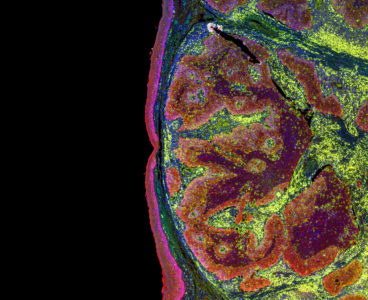
Bacterial Protein Mimics DNA to Sabotage Cells’ Defenses
Infections with Salmonella bacteria, often caused by eating or handling undercooked meat or eggs, affect about 100 million people a year worldwide. The suffering the infection causes – abdominal cramps, fever and diarrhea – is the result of an extremely precise set of molecular interactions between the bacterium and the infected human’s cells. In a…
The Secret Sulfate Code That Lets the Bad Tau In
Iron-Sulfur Cluster Research Offers New Avenues of Investigating Disease
How Pathogenic Bacteria Prepare a Sticky Adhesion Protein
Researchers at Harvard Medical School, the University of California, San Francisco, and the University of Georgia have described how the protein that allows strep and staph bacteria to stick to human cells is prepared and packaged. The research, which could facilitate the development of new antibiotics, will appear in the April 6 issue of the…
Looking For an Off Switch for Celiac Disease
Expanding the Reach of Therapeutic Antibodies
A group of researchers has developed an approach to efficiently produce antibodies that can bind to two different target molecules simultaneously, a long-desired innovation in the field of cancer immunotherapy. The details will be published in the Sept. 1 issue of the Journal of Biological Chemistry. Antibodies are proteins produced by the immune system that specialize…






